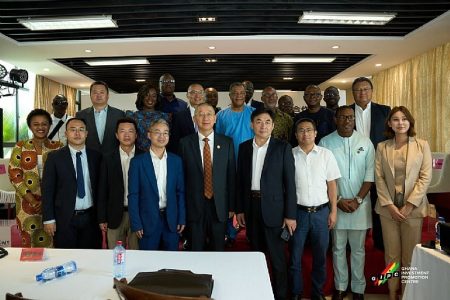Rethinking Airport Revenue Generation in Nigeria: A Call for Innovative Approaches
The Nigerian aviation sector finds itself at a critical juncture. While experiencing a surge in airport development, the focus must shift beyond mere expansion to encompass efficient management, innovative revenue generation, and sustainable infrastructure. Mr. Remi Jibodu, Acting Chief Operating Officer and Head of Aeronautics and Cargo Services of Bi-Courtney Aviation Services Ltd., has pointedly addressed this issue, urging Nigerian airport operators to rethink their approach to revenue generation. He emphasizes the need to explore non-aeronautical revenue streams, ensuring that all stakeholders benefit from the economic activities fostered by aviation. This approach, according to Jibodu, should prioritize fostering economic activities and creating a mutually beneficial environment for all involved.
A key challenge facing airport development in Nigeria is the inadequate funding from government sources. Jibodu highlights the shortfall in addressing critical areas such as security enhancements, including perimeter fencing, surveillance, and emergency response systems. Recognizing the government’s limitations in solely funding airport development, he advocates for public-private partnerships (PPPs) as a viable solution. PPPs offer a mechanism for shared investment, risk, and returns, creating a win-win scenario where the government’s financial burden is lessened and private sector expertise and resources can be leveraged. This collaborative approach can inject much-needed capital into airport infrastructure, facilitating improvements in safety, security, and overall operational efficiency.
Industry experts echo Jibodu’s call for a more strategic approach to airport management. Captain Ado Sanusi of Aero Contractors underscores the importance of addressing Nigeria’s maintenance culture, stressing that lack of infrastructure lies at the heart of many challenges. Sanusi advocates for genuine commitment to PPP models, emphasizing that true partnership requires full transparency and a willingness to embrace the principles of shared responsibility. Similarly, George Uriesi, CEO of Ibom Air, champions professionalism and meticulous planning in airport development, regardless of the chosen operational model. Both Sanusi and Uriesi caution against superficial adoption of PPPs, emphasizing the need for genuine commitment, transparency, and a results-oriented approach to ensure success.
Amidst concerns about decaying airport facilities, the Murtala Muhammed Airport 2 (MMA2) emerges as a shining example of efficient airport management. Its smart operations, centered around optimizing passenger experience, demonstrate the transformative potential of technology and strategic planning. MMA2 has embraced digital systems, streamlining processes from check-in to baggage handling. Automated systems and intelligent flow designs minimize queues and processing time, ensuring a smoother, less stressful journey for passengers. Real-time flight information and readily available customer service further enhance the passenger experience, fostering a sense of predictability and reducing travel anxiety.
Beyond passenger-facing improvements, MMA2’s smart operations extend behind the scenes. Intelligent Building Management Systems optimize resource utilization, enhancing efficiency and sustainability. These systems regulate energy consumption, lighting, air conditioning, and waste management, contributing to a reduced carbon footprint and significant cost savings. Furthermore, data analytics provide real-time insights into passenger flow, peak periods, and potential operational bottlenecks. This data-driven approach enables proactive decision-making regarding staff deployment, resource allocation, and predictive maintenance, ensuring optimal operational fluidity and resilience.
The MMA2 model provides a compelling case study for other Nigerian airports. Its success underscores the importance of integrating technology, prioritizing passenger experience, and embracing data-driven decision-making. As the aviation sector continues to expand, it is crucial that airport development prioritizes not only quantity but also quality, efficiency, and sustainability. Adopting a holistic approach, similar to that implemented at MMA2, can transform Nigerian airports into world-class facilities, boosting the nation’s economy and enhancing the travel experience for all. The focus should be on long-term viability, ensuring that these crucial infrastructure assets contribute meaningfully to Nigeria’s economic growth and provide a seamless, efficient, and enjoyable travel experience for all stakeholders.














